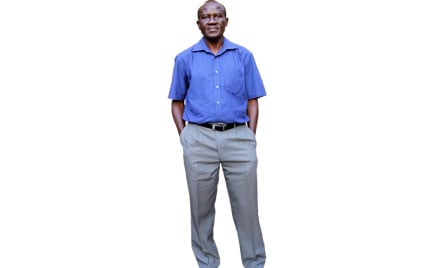Pentecostals, witchdoctors should form one association

Alan Tacca
What you need to know:
- Problem. The problem is far bigger than Serwadda’s pet distraction of sorting out errant pastors; the drunkards and fornicators; or the rice and watermelon profiteers. Otherwise the cart is before the horse. None – not even the President – can yet correctly call them one (organised) religion; sorry, one organised faith.
President Museveni does not claim specialised knowledge in the area of religion. He may, therefore, be no wiser than us, ordinary laymen, on the subject.
So, this daily insistence in an Impact FM clip, that President Museveni is different from Yusuf Lule, Godfrey Binaisa, Paulo Muwanga, Milton Obote and Idi Amin because he recognised the Born Again Christians (or Pentecostals) as an independent faith may serve only to pin down and embarrass the President. For the President may have made a simple human mistake.
Instead, of course, I may be mistaken. I see our Pentecostals as rivalling, feuding neo-pagan Christian cults. They even hate the description, religion, because it implies structured, hierarchical authority and formal worship; features they say block or distort spiritual contact between them and their God.
However, if a cult is a religion-like organisation using deceitful psychological techniques to attract and control followers, accompanied by an intense devotion to the leader, most of our Pentecostal assemblies can be described as cults.
Returning from a funeral in Kiboga last Sunday, our 14-seater bus was full of conversations about disease and death. The lady in front of me was narrating to her neighbour how her ailing aunt was instructed by a hooded or faceless stranger to dig near their family graveyard. When she dug, a human skull popped out of the ground, bouncing about like a ball. She screamed. Her people took her to a ‘musawo’ (witchdoctor), who performed emikolo (rituals) to appease a long-dead relative, and she got better.
But the cycle was repeated several times.
Pondering the absurd story, it occurred to me that it was an elaborate blend of ‘events’ in the aunt’s dreams and events in real life, but the narrator could not distinguish between the different levels of reality. For her (and her credulous neighbour), the ‘events’ in her aunt’s dreams were as concrete as the events in her woken state! The spirits of the dead were constantly relating with the aunt, sometimes through dreams, sometimes through possessed relatives and the divination of witchdoctors. When the dream skull reappeared, the skilful trickery of the witchdoctor was probably at work.
At this station where many people cannot grasp reality, the occult reigns, and the witchdoctor and the Ugandan Pentecostal pastor build their shops.
The traditional churches are struggling to crawl out of this medieval station, albeit very, very slowly. The Pentecostals are fighting to recruit followers to that station.
Dr Joseph Serwadda, an ‘apostle’ of the Victory Church group, understands that, ultimately, most governments would prefer to deal with institutionalised religious organisations.
But the Pentecostals thought they were spiritually (and even morally!) superior to the old churches and rejected them. Uganda now has thousands of variously named holier-than-thou rogue outfits.
God, therefore, must not stop at the daily prosperity miracles Pentecostals claim. He must magically unite the pastors. Then they will sit, decide their beliefs and creeds, write down their canon law, decide their liturgy and indicate their ecumenical doctrine… and so on, confirming they know the rules by which they can (consistently) regulate themselves beyond loose verbal commitments.
The problem is far bigger than Serwadda’s pet distraction of sorting out errant pastors; the drunkards and fornicators; or the rice and watermelon profiteers.
Otherwise the cart is before the horse. None – not even the President – can yet correctly call them one (organised) religion; sorry, one organised faith.
More realistically, for now, our Pentecostals and witchdoctors can form an association to rightly assert their freedom of worship, as long as they do not break the law.




